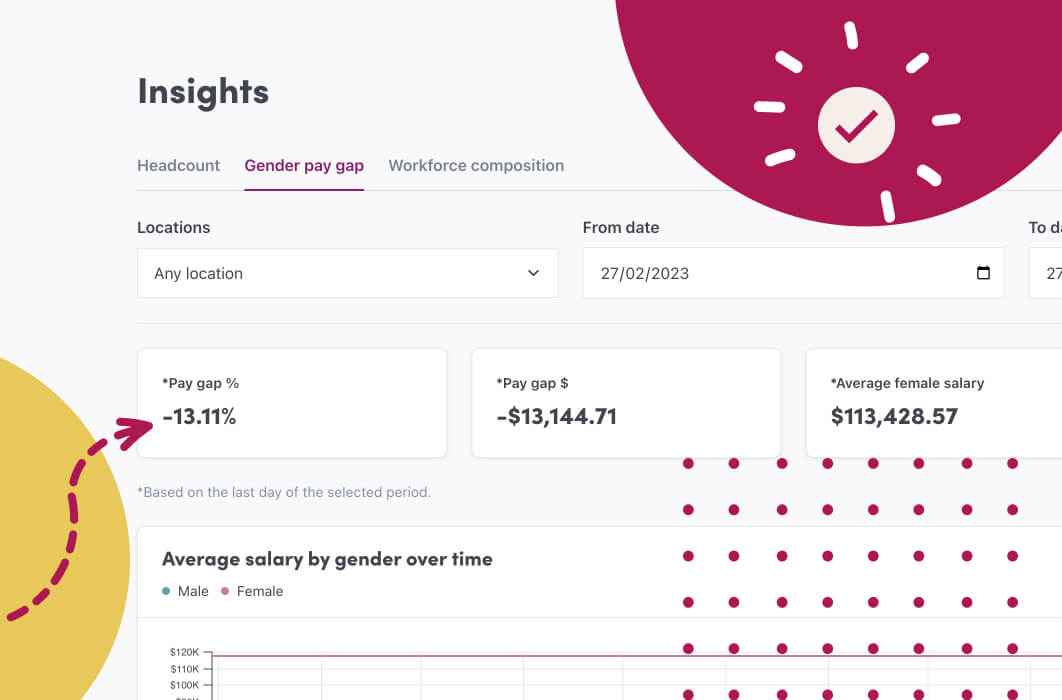On 22 March 2021, new legislation was passed that significantly amended the casual employment regime in Australia.
The legislation goes on to include a clarified definition of the ‘casual employee’ and expands upon already existing casual conversion rights, including an obligation on employers to offer permanent employment in certain circumstances.
Not sure about the changes?
If not we have a complete guide available here. In this guide we set out the new rules that apply to casual employees and what actions employers need to take in response to the new rules.
In this video, Source HR deep dive into casual conversion obligations, giving you 10 tips or things that you should be aware of.
10 tips for casual conversion obligations
Casual conversion tip #1
Tip number one is if you’re a small business employer. A small business employee is defined as someone who employs less than 15 employees. If that’s the case, you don’t need to proactively undertake the assessment process. So when a casual employee reaches their 12 month service for all other employers, they all need to undertake an assessment of whether or not that employment should be converted to a part-time or full-time employment offering, and then they need to write to an employee to let them know whether or not they’re making that offer of casual conversion or not.
As a small business employer, you won’t need to do this unless a modern award says that you need to. So check whether or not your people are covered by a modern award. If the modern award doesn’t require you to do something like that, then your only obligation is if an employee comes to you and says, “I want my employment to be converted from casual employment to a permit type of employment,” at that time, you’ll need to undertake the assessment and let them know the outcome.
Tip #2
Tip number two is to make sure you have some good records in relation to employees start dates. So, as I said, for every other employer, their obligation kicks in 12 months after the casual employee started. Worknice employee database software helps you manage your data in one single spot.
So that means you have to know when your casual employees started with you and ideally you might want to set up some kind of automated reminder process to trigger you to undertake that assessment.
Tip #3
Tip number three, this obligation only arises once. There seems to be a little bit of confusion with people thinking that they need to undertake this process every 12 months. No, that’s not correct. You only need to undertake it once. Otherwise you won’t need to do anything unless an employee comes to you at a later date and asks for their employment to be converted in which case you’ll have to do the assessment and let them know the outcome.
Keep on top of a changing compliance landscape
Reduce risk and ensure legal compliance with simple tools to manage policies, qualifications, approval processes and more.
Australia’s best HRIS softwareTip #4
Tip number four is about how these provisions interact with modern awards. So, as I said before, modern awards may have their own provisions in relation to casual conversion. Some of these are actually more beneficial than the new provision that in the Fair Work Act.
So for example, under the manufacturing and associated industries award, there’s a casual conversion clause that kicks in after six months, rather than 12 months. So the Fair Work Commission is going to be looking at this and looking at the modern awards and making changes. The intention is that the modern awards will be aligned with these new changes to the Fair Work Act, i.e. that all the casual conversion will kick in after 12 months. However, those changes haven’t yet been made to those modern awards. So until those changes are made, if your employees are covered by a modern award that has a more beneficial provision, that provision will continue to be in place and continue to bind you.
Tip #5
Tip number five, remember your obligation is to review and to make a decision and write to the employee. It’s not necessarily an obligation to offer a permanent type of employment.
You may have grounds not to offer and you can just decide to do that. One of those grounds we know is reasonable grounds. Reasonable grounds will include things like the role ceasing to exist in the next 12 months or there being a significant reduction in working hours. If you choose not to offer casual conversion on one of these grounds, then you should have some evidence for this.
Tip #6
Tip number six, have some template casual conversion letters ready. We have a bunch. It’s in our casual guide. Do employees need to sign those letters? No. Again, this is not an agreement between you and the employee. The obligation is on you as the employer to make a decision, and then you just need to let them know that decision.
Tip #7
Tip number seven, have a think about your comms process here. You may going to get some FAQs in place.
Chances are these casual employees have not received these types of letters before in relation to the casual conversion of their employment. There may be some people that love being casual employees. Make sure you’re ahead of the game. And if you can provide some context around why you’re doing what you’re doing, it will become a more seamless process.
Tip #8
Tip number eight. Remember it, it’s an offer of casual conversion. An employee still needs to accept that offer and they may well reject it. They may well decide no I’m happy being a casual employee. I’m going to continue to be a casual employee. That’s completely fine. Just make sure you keep records of their decision.
Tip #9
Tip number nine, if they do accept the offer, they are to become entitled to all of the entitlements that a permanent employee would get. So things like annual leave, personal carers leave, redundancy pay in certain situations.
So be mindful of that. You may want to consider issuing a new contract at this stage.
Tip #10
Finally, tip number 10, if an employee disagrees with your outcome. So say you choose not to offer them permanent employment on what you say are reasonable grounds, say the employee disputes this, and doesn’t think that’s reasonable grounds. Then what happens is they have to go through the dispute resolution process, whatever that may be. So that may be outlined in your enterprise agreement or in your modern award or as an organisational policy. The matter can be referred to the Fair Work Commission, but they can only arbitrate with your agreement. That being said, an employee can run off to a court and get some orders as the final escalation point in the process.
Subscribe for more Australian employment updates.
Stay in the loop
Worknice partners with Source HR
Who is Source?
On-tap HR services, without the in-house price tag
Worknice has partnered with Source to provide expert advice that leverages our technology platform. Get on-tap access to a team of experienced HR specialists and employment law professionals to help your business and people thrive. Whether you want ongoing HR support on a monthly retainer basis, or you just need HR expertise for specific projects, Source HR can help.
HR Advice + employment law advice
Pair your HR technology with professional services. Access ongoing HR and legal support on a monthly retainer.
It’s never been more critical to have the right support to navigate change, maximise performance, and protect your business. Backed by employment law expertise, Source HR combines operational and strategic HR services alongside the Worknice platform. The Source team gets to know your business intimately and builds a deep, supportive relationship to provide in-house style expertise that is tailored to your business needs.




